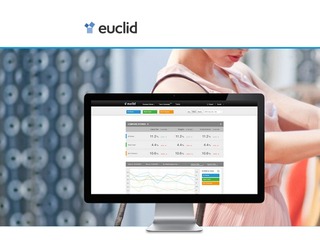Digital health funding declines for the third year in a row
AI-enabled digital health startups raised $3.7B, 37% of total funding for the sector
Read more...
Every year, around Halloween, there seem to be a number of small stores that pop up for just a short time, then disappear for the next 11 months. I always kind of wondered how that worked exactly; like do those stores have an agreement that they will be guaranteed that space just for October of every year?
Probably not, and that is where Storefront comes in. It is an online marketplace that helps companies find short-term retail spaces. Storefront has now raised $1.6 million in seed funding, the company announced Wednesday.
The investment came from Mohr Davidow Ventures, Great Oaks VC, 500 Startups, David Tisch’s Box Group, Sand Hill Angels, and other industry-relevant angels. The company says that it will be using the investment to expand to new markets, the first being in New York City, where it officially launched today, Erik Eliason, Storefront's co-founder and CEO, told me in an interview.
Storefront already has 100 listings in New York City, and it has rented out out a few store fronts. In its home city of San Francisco, it has rented out 100 stores and currently has roughly 1,000 listings.
Storefront, which is a graduate of AngelPad, is a platform that helps businesses with all of the hassles of leasing a store, including searching for a space, finding insurance, signing contracts, securing the right fixtures, staff and signage needed to set up a store.
At the same time, the company also helps space owners, commercial brokers, and shopping malls market their spaces to potential tenants for short-term use by putting up listings that include full descriptions of the space, local attractions in the area and professional photos.
What separates Storefront from its competitors, including Craiglist, is that all of their listings are verified, whereas on Craiglist a potential customer might only see a 10% response rate.
Eliason also addressed the common thinking that brick and mortar stores are losing to e-commerce. But, while it is true that e-commerce is a growing industry, the fact remains that the vast majority of U.S. retail purchases are still made in brick-and-mortar shops—a full 95%, according to Eliason.
And Storefront has the opportunity to take a large percentage of that business.
"Many retailers simply cannot afford the price of a two to five year lease," he said. "That only works for 10% of the market, leaving 90% that need short term space."
Storefront makes money by taking a referral fee from the over 40 partners it has in the insurance, signare and staffing spaces. The company does not take a referral fee from brokers, though, as that would require Storefront to be a licensed broker itself, said Eliason.
Since renting out its first storefront in December, and launching its website in March, Storefront has listed over three million square feet of retail space. It has also helped over 100 companies open shops in San Francisco. Its clients include malls and brokers such as Westfield, Simon, GGP, Colliers International, Cushman & Wakefield, Jones Lang LaSalle, and CBRE.
Ultimately, Eliason said, the goal of the company is to "make it as easy to open an offline store as it is to open an online store."
"Like how Square has simplified the payment process, we want to do the same thing for finding a retail space."
Money into brick and mortar
A number of companies that cater to the brick and mortar space have been raising money in the last few months.
Online to offline marketing (O2O) company Retailigence, which uses inventory data obtained directly from retailers to create Web and mobile ads and alerts that drive sales to local storefronts, recently raised $6.3 million in Series B funding
In February, two retail analytics providers also raised money.
First it was Nomi, a startup led by former executives from Salesforce.com and Buddy Media, which leverages a retailer's existing infrastructure by integrating with existing CRM, loyalty, and e-commerce platforms to gain insights into both offline and online data to provide customers with more personalized service. The company raised raised $3 million in seed funding.
Then Euclid, which uses sensors placed inside retail store to gain insights and information about store shoppers, including how shoppers spent in the store, and how long lines in the store were, raised $17.3 million in Series B financing.
(Image source: https://www.thestorefront.com)
AI-enabled digital health startups raised $3.7B, 37% of total funding for the sector
Read more...OXcan combines proteomics and artificial intelligence for early detection
Read more...Nearly $265B in claims are denied every year because of the way they're coded
Read more...Startup/Business
Joined Vator on
Storefront is a marketplace for short-term retail space.
Startup/Business
Joined Vator on
Euclid delivers actionable shopper insights to brick-and-mortar retailers—think Google Analytics for offline retail. Providing real-world metrics like Engagement Rate, Visit Duration, and Visit Frequency, Euclid helps retailers optimize the performance of their marketing, merchandising, and operations. With simple setup and an easy-to-use web dashboard, national chains and local boutiques alike can boost traffic, engagement, loyalty, and revenue. Built on a commitment to protecting individual privacy, Euclid’s technology provides only aggregated, anonymous insights. Euclid is redefining retail decision-making, from the stockroom to the boardroom.
Startup/Business
Joined Vator on
Retailigence is a hyperlocal marketing platform that utilizes brick-and-mortar inventory data obtained directly from retailers to turn online consumers into offline buyers. Serving both retailers and brands, Retailigence distributes local store inventory-based advertising via its own network of location-based application partners, mobile ad networks, mobile ad exchanges, search providers and social networks.

Joined Vator on


